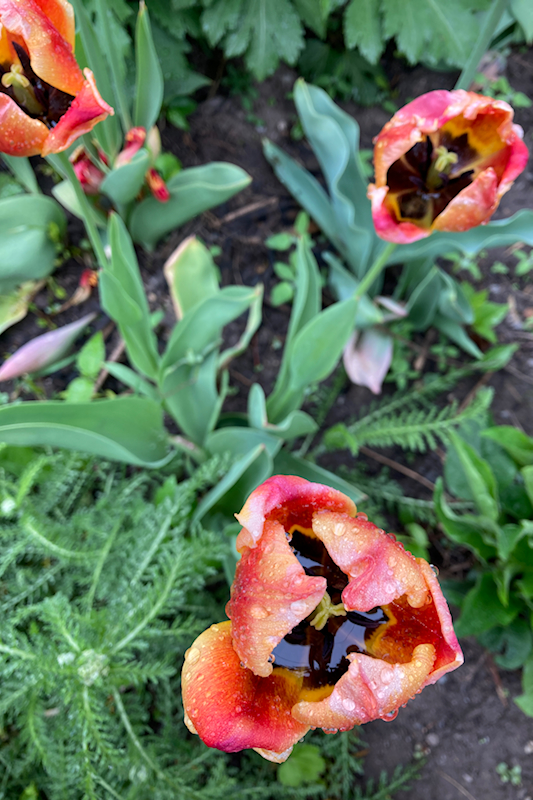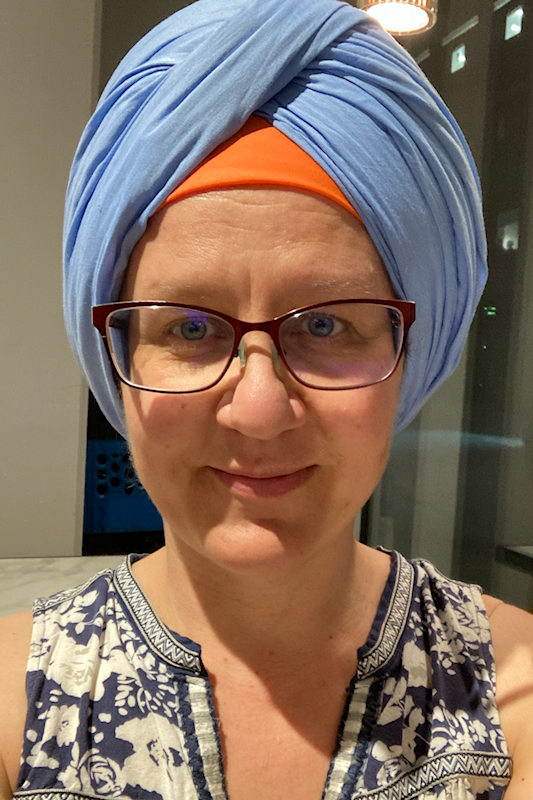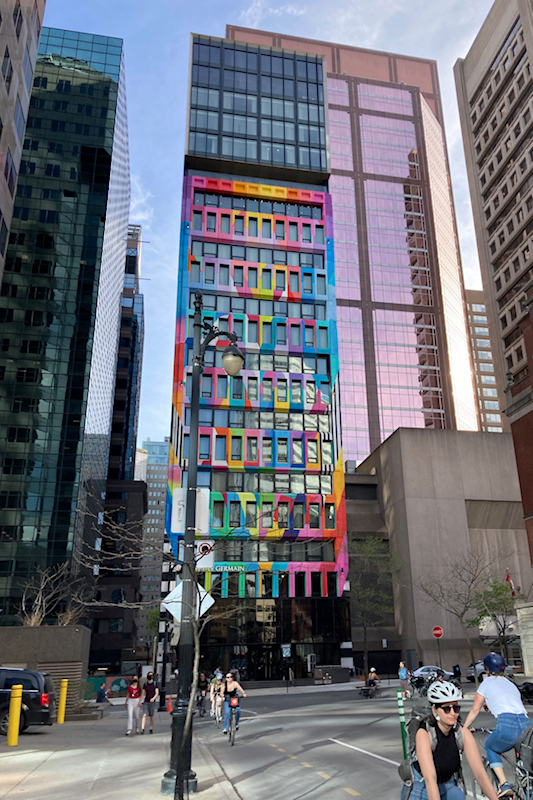Get posts by email
Why have you become so political? I'm so glad you asked.
May 27, 2022
This little blurb here at the beginning will date this piece, attaching it to a specific Instagram account I follow that is popular at this moment. But all the things we do and write are dated. Fixed to a certain time. So too is this.
Elyse Myers produces funny, self-deprecating short videos using the formula:
Pose question: I’m so glad you asked.
Of course, no one has necessarily asked her that specific question but it’s a frame, a device, that allows her to share a funny story about herself, in the form of an answer.
It’s a kind of artifice. And I’m not ashamed to borrow the format for myself.
No one has asked me “why are you becoming so political?” But the fact is, this winter my writing and my Instagram content shifted hard into the political realm. I think I’ve done a pretty good job of explaining on my blog, on YouTube, and in my Instagram posts, the motivation behind all that.
Namely, the pandemic revealed a whole lot about western society and culture, forcing me to reckon with things I’ve been ignoring and intellectually pushing aside for a long time. As it happened, I also started my graduate studies in the midst of the pandemic and what I’ve been learning in that program has provided me with a lens and language to articulate and critique political, cultural, and societal happenings.

Today’s post is an introduction to a blog series titled: Why have you become so political? At the time of publishing this introduction, I have about six more posts in the draft queue that I will be publishing through June and maybe July, depending on how fast I get them out.
This series is going to be a multi-media experience. I have video clips, audio clips, and even some music lined up! Yay!
Remember in school how we loved classes where we watched films? Actual films in elementary school and then video cassette in high school. Well, I’m bringing in some other sources for variety and interest (film class!), but also to lean on the ideas and credibility of people much smarter than me to help me communicate what I think.
A lot of what I’m trying to explicate in this series is incredibly complex, above my pay grade, education, and training. I can’t hope, nor am I suggesting, that what I will discuss is a unifying hypothesis of “what’s going on politically”.
I have spent the last half a year reading and listening to more than my usual dose of philosophy, science, psychology, ethics, political theory, history, current events, etc. to try and understand my world, and to make sense of, and articulate, my own ideas. I have been wrestling intellectually and spiritually with what political action looks like in response to what I’m observing, learning, and processing. I have accepted the challenge to defend and explain my positions and actions.
This series is a response to all that.
Why have you become so political? I’m so glad you asked.
My own political history
I haven’t considered myself to be an especially political person. In writing this series however, in reflecting on my ideas and cataloging my past political engagement, I realize my political-orientated behavior this winter is not out of character, though it may be surprising to readers.
Over the years my political involvement has included phone calls and letter writing to politicians, meeting with local representatives to express my views, political party membership and donations, and volunteering for and actively campaigning with the Green Party in the 2016 Federal election. As an parent-educator, I used Student Vote materials to teach a group of homeschool kids, including my own, rudimentary civic literacy.
Living in Quebec, I’ve regularly joined protests against provincial government legislation, including divisive secularization and language laws. Three years ago I wrote about my staunch opposition to the Quebec government’s Bill 21 that especially targets Muslim women and other religious minorities. Earlier this month I protested with thousands of other Montrealers against discriminatory language laws.
All that to say, my political activity and interest this past winter in attending and supporting the Ottawa protests against pandemic policies and Covid-19 vaccine mandates is not out of character for me.
What is different this season is my heightened interest and inquiry into political theory, my political-oriented commentary on my social media, and an active quest for much broader media inputs than what I’ve been digesting for the past few years.
I’m now embarrassed to say that I have previously considered myself a “reasonably informed citizen” with a subscription to the local newspaper, The New York Times, and regularly listening to CBC.
These sources are no longer sufficient to the task, a topic I will discuss more in-depth later in this series.
Whereas previous political interests were around specific issues, policies, and platforms, in the past year, my political awareness has expanded to questioning the underlying systems and structures of governance themselves. After many years of taking representative democracy at face value, I’ve been asking, “what is really going on here?” What is going on in western liberal democracies, in general, and in Canada specifically?

In early May I was "turban-ed" to show solidarity in celebrating Sikh Heritage Month on campus. I asked, this is not cultural or religious appropriation.
This past December I published that,
The last few years have been an incredible time of growing awareness for me of injustices; systemic societal problems; environmental disasters; and economic, social, and political inequity with regards to the state of the world.
Last summer I took a course on global citizenship, taught from a critical theory and transformative framework. (This orientation privileges marginalized and de-centered perspectives, and challenges existing power structures with the clear aim of both resistance and social reform.) This course, and my grad studies more generally, have contributed to the growing awareness I wrote about in December, and have definitely activated a deeper critique of western culture and especially policy.
Summer was followed by a fall election of socially destructive rhetoric and an autumn of divisive pandemic mandates that were unequivocally endorsed and supported by our left of center and federally funded media. Winter arrived and the trucks rolled into Ottawa, which I experienced in-person and first hand, no need to rely on media reporting. And by the time I witnessed our government’s authoritarian responses to peaceful civil disobedience, straight out of the playbook of very “illiberal” governments, my questioning, awareness, and critiques had shifted into overdrive. There was no going back.
My past civic and political engagement has been limited to specific issues and elections. I wasn’t aware or informed enough, not to mention I've been well-insulated and bubbled by privilege, to be truly concerned and critical about the system or the structure itself. Now I am.
Defining Politics
One of the primary ways we tend to think about “politics” is as the mechanisms or processes for governance in our society: voting, campaigning, political parties - all that.
By this definition I am definitely “political”, as I’ve already laid out above. I am interested in understanding political parties and knowing their platforms and policies and looking for one that represents my own beliefs and values.
In Canada, we have multiple political parties and many citizens will move their allegiance and support along the spectrum depending on the current situation. Certainly some people only vote for party A or B, but in my experience and connections, a dogged allegiance to one party is rare. I have actively aligned myself with different parties over the years in voting, party membership, and vocal support.
So that’s one understanding of the word. And a bit of Canadian political context for the uninitiated.
But the idea of politics and political action is much more expansive than civics education, political party membership, voting, protesting, and campaigning.
The English word politics, dating back to the early 15th century, has its roots in the Greek word “polis”, which means a few things including the state, community, citizens. Essentially the people.
My own broader understanding of the word “political” is how we imagine and embody doing life together, as the people, or the polis. For me, “political” encompasses the beliefs, worldviews, conversations, and actions related to one’s vision of living as a group. How do you envision and enact group functioning, organization, and governance?
By this definition every single person I know is political, because everybody has ideas about how groups should be organized and governed and how individuals in that group should relate to one another. And in my experience these ideas evolve and change over time, especially when we broaden our lived reality through relationships, travel, education, etc.

You may never cast a vote in a municipal, provincial or even federal election, but the actions of your life, the way you understand yourself in relation to others, how you envision people’s lives being connected to each other, all of that and much more, is a more robust definition of the word political.
Within this broader understanding I am very political, to a degree much deeper than any actions I’ve taken in the explicitly defined “political realm”.
Some people claim they aren’t political or that they don't like politics. This might just be a way of staying clear of contentious conversations and complicated issues.
However, I contend all of us are political. We all live a certain way, with ideas about group dynamics, governance, and organization. Whether that’s within families, churches, social groups, online platforms, community organizations, or institutions. The way we live in those group spaces, and our visions for decision making and conflict resolution reveals our political ideas as much, if not more than, our voting habits do.
Next Post: The most political thing I’ve ever done. (Spoiler alert: it has nothing to do with anything I've discussed here.)
Don’t miss a post. Subscribe to my mailing list (it’s free!) and get posts delivered to your inbox.
Filed Under
Part of Series
You can subscribe to comments on this article using this form.
If you have already commented on this article, you do not need to do this, as you were automatically subscribed.





